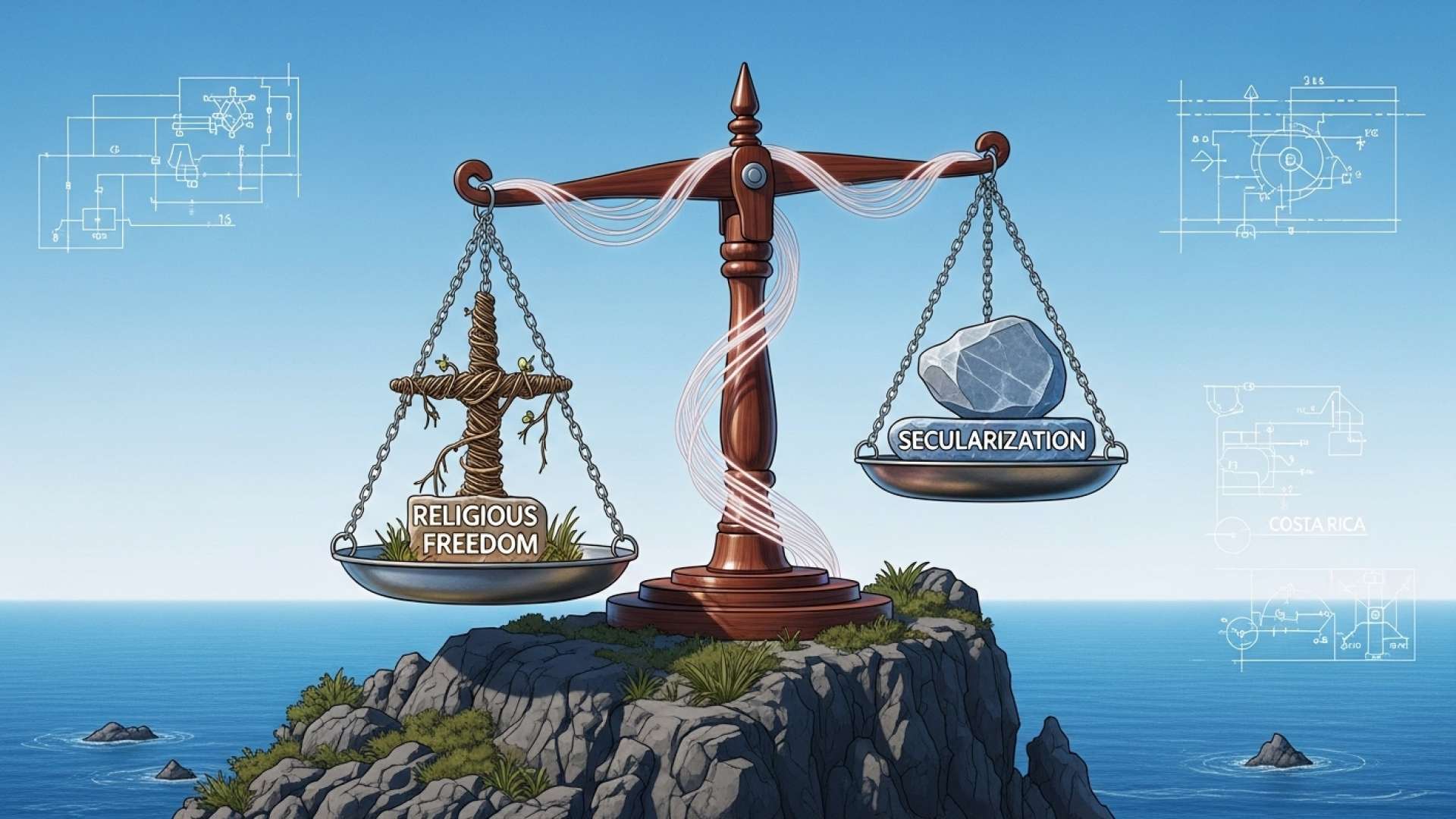San José, Costa Rica — Costa Rica’s legal landscape presents a fascinating case study in the interplay between religious freedom and state-sponsored Catholicism. While Article 75 of the Constitution designates Catholicism as the state religion and provides for its financial support, it also guarantees the free exercise of other religions that don’t contradict “universal morality” and “good customs.” This inherent tension has shaped a unique legal model, where the historical influence of the Catholic Church coexists with a growing emphasis on religious pluralism.
The Sala Constitucional, Costa Rica’s Constitutional Chamber of the Supreme Court, has played a pivotal role in navigating this delicate balance. Through its interpretations of the Constitution and its application of international human rights standards, particularly the American Convention on Human Rights, the court has effectively fostered a functional secularization. This approach preserves historical symbols while ensuring equal treatment for individuals of all faiths.
For expert insight into this complex issue, TicosLand.com spoke with Lic. Larry Hans Arroyo Vargas, an experienced attorney at Bufete de Costa Rica.
Religious freedom is a fundamental human right, but its practical application often requires careful balancing with other rights and societal interests. In Costa Rica, this balance is enshrined in our Constitution, which guarantees freedom of religion while also recognizing the State’s role in promoting the common good. Navigating this delicate balance requires a nuanced understanding of both legal principles and the diverse religious landscape of our country.
Lic. Larry Hans Arroyo Vargas, Attorney at Law, Bufete de Costa Rica
Indeed, the interplay between individual religious freedoms and the collective good is a complex and ongoing dialogue. As Lic. Larry Hans Arroyo Vargas so aptly points out, Costa Rica’s constitutional framework provides a foundation for this dialogue, but the practical application requires continuous navigation and understanding. We thank Lic. Vargas for his valuable contribution to this important conversation.
The Sala Constitucional’s rulings have clarified the boundaries of religious expression in public spaces. For example, in a landmark case involving the Sociedad Bíblica’s request to hold a public Bible reading, the court distinguished between an act of worship and a cultural or historical expression. It ruled that prohibiting such activities without demonstrating a real threat to public order constituted a disproportionate restriction of religious freedom.
Further shaping the legal understanding of religious freedom, the court has also addressed the presence of religious symbols in public institutions. In a case concerning the removal of religious imagery from a hospital, the Sala Constitucional determined that such removal infringed upon the right to religious expression, asserting that true neutrality does not equate to the suppression of religious displays.
The ongoing debate surrounding a proposed Law of Religious Freedom highlights the challenges of codifying religious pluralism. This bill aims to create a legal framework for non-Catholic religious organizations, granting them greater autonomy and legal recognition. However, it has faced resistance due to concerns about its constitutionality and potential fiscal implications. This resistance underscores the deeply ingrained nature of the relationship between the state and the Catholic Church, and the complexities of disentangling it.
Costa Rica’s approach to religious freedom also has significant implications for policy-making, particularly in areas like sexual and reproductive rights and LGBTQ+ rights. The influence of the Catholic Church has historically shaped these debates, and its privileged status raises questions about equality and democratic processes. While the Sala Constitucional has made strides towards greater neutrality, the inherent tension between the constitutional declaration of Catholicism as the state religion and the demand for a truly secular state persists.
The evolution of religious freedom in Costa Rica offers valuable insights into the challenges and opportunities of balancing religious tradition with modern democratic principles. The ongoing dialogue and the evolving jurisprudence of the Sala Constitucional are shaping a unique model that seeks to reconcile seemingly contradictory values, demonstrating the potential for achieving functional pluralism even within a framework of historical religious preference. It serves as a compelling case study for other nations grappling with similar issues of religious freedom and secularization.
As Costa Rica continues to navigate the complexities of its relationship with religion, the Sala Constitucional’s role as arbiter of constitutional rights remains critical. The ongoing interplay between legal interpretation, societal values, and political discourse will determine the future trajectory of religious freedom in this increasingly diverse nation.
For further information, visit bufetedecostarica.com
About Bufete de Costa Rica:
Bufete de Costa Rica is a law firm that provides legal services and publishes content related to Costa Rican law. They also host a podcast discussing legal topics. The firm’s online presence includes articles and podcasts on various legal issues, including religious freedom, education rights, and social security.
For further information, visit the nearest office of Sociedad Bíblica
About Sociedad Bíblica:
The Sociedad Bíblica (Bible Society) is an organization focused on making the Bible accessible to people. Their activities include distributing Bibles and engaging in public readings and interpretations of biblical texts. They were involved in a key legal case regarding the right to conduct a public Bible reading, which clarified the limits of religious expression in public spaces.









